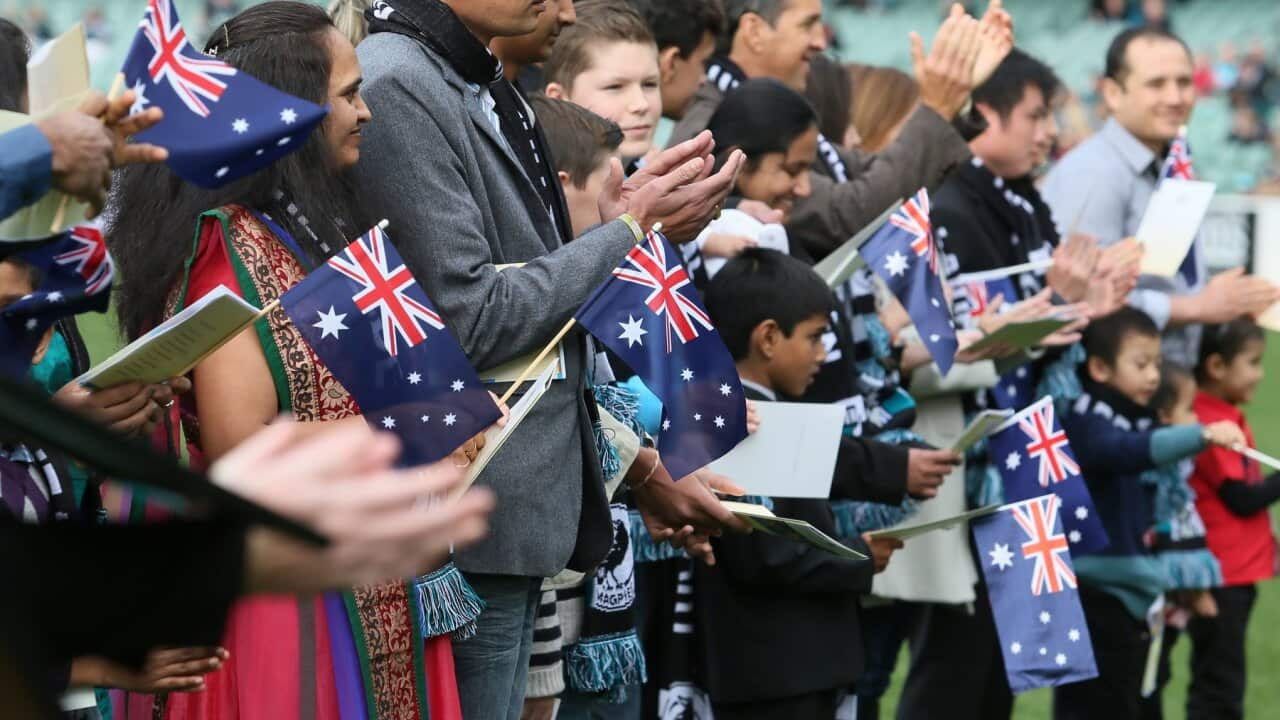Tens of thousands of migrants waiting to become Australian citizens are now facing an after ceremonies across the country were cancelled due to restrictions brought on by the coronavirus pandemic.
Many are calling on the government to follow New Zealand and temporarily waive the requirement of a public ceremony and oath-taking while national restrictions on mass gatherings remain in place.
Concerns have also been raised that pressing pause on citizenship ceremonies all together will create further unnecessary delays in the already overloaded citizenship process.
Sydney resident Susan Parmentier, who migrated from Venezuela, had been looking forward to the moment she became an Australian citizen for more than five years.
But despite meeting the residence, character, and other requirements to become a citizen, and passing the citizenship test, her hopes were shattered after the City of Sydney council announced their ceremonies would be cancelled until further notice.
While she understands the public health rationale for shutting down the ceremonies, she wants the government to find an alternative way to grant her citizenship.
“We have been left in limbo … we don’t know when it’s going to end,” the 32-year-old told SBS News. “To have the citizenship put on hold right at the end when all we need to do is attend the ceremony is a bit disappointing.”
Ms Parmentier said she was particularly worried as her home country has stopped issuing passports and she is currently unable to travel in an emergency.
After joining a forum with other people left waiting for their citizenship to be finalised, she decided to start a petition calling on the government to act.
“It’s a goal that has taken, for many of us at least, five years of hard work, taking tests, having our degrees assessed, saving money for visas and permanent residencies,” she said.
“The majority of people are looking forward to making the pledge of commitment, that’s part of the requirement and we’re more than happy to do it, either electronically or via statutory declaration.”
After an application for Australian citizenship is approved, migrants are required to attend an in-person ceremony and make the Australian Citizenship Pledge before becoming an official citizen. Incoming citizens are usually invited to a ceremony organised by their local council within six months of their application being approved. In the 2018-19 financial year, 127,674 people became Australian citizens - almost 2,500 every week - but a backlog is now expected to pile up.
In the 2018-19 financial year, 127,674 people became Australian citizens - almost 2,500 every week - but a backlog is now expected to pile up.

The number of citizenship applications lodged each financial year. Source: Home Affairs Department
On 29 February 2020, the Department of Home Affairs had more than 120,000 applications on hand, with more than 16,000 new applications received in February alone.
The current waiting time from date of application to ceremony can be up to two years for 90 per cent of applicants in the main stream.
New Zealand national Carla Jones is among the thousands waiting for their citizenship process to come to an end after she said: “ceremonies came to a grinding halt”.
The Brisbane resident, who came to Australian in 2011 following the Christchurch earthquakes, said there has been “no communication whatsoever” about the cancellation, leaving her and others who have had their applications approved to discover the news on social media.
“I want to be able to vote, there are state elections coming up in October, I want to be able to fully participate in Australian society and currently I’m hamstrung from doing so,” she said.
Ms Jones added that she was unable to finalise her divorce without proving her Australian citizenship. Last month, New Zealand’s department of internal affairs announced that all citizenship ceremonies would be cancelled and prospective citizens would be allowed to sign a statutory declaration as a replacement for a public oath.
Last month, New Zealand’s department of internal affairs announced that all citizenship ceremonies would be cancelled and prospective citizens would be allowed to sign a statutory declaration as a replacement for a public oath.

Minister for Immigration David Coleman, who is currently on leave. Source: AAP
Professor Mary Crock, an expert in citizenship law at the University of Sydney, said there were alternative ways prospective citizens could take an oath without attending a mass gathering, but that developing a new process was likely low priority for the government.
“You’re dealing with a government that is just struggling to keep its head above water, and for that reason, citizenship has just slipped down the list of priorities,” she said.
Those waiting for their official ceremony are still able to access most of the same rights afforded to Australian citizens, including unemployment benefits for permanent residents, but they are not able to vote or apply for an Australian passport.
New Zealand nationals in Australia affected by the COVID-19 restrictions have also been , which allows employees of companies and not-for-profits that have lost at least 30 per cent of their revenue to be paid $1,500 a fortnight.
The Department of Home Affairs did not respond to a request for comment.
In September last year, Immigration Minister David Coleman said his department had been working to process citizenship applications as “efficiently as possible, while also maintaining the integrity of the program”.
People in Australia must stay at least 1.5 metres away from others and gatherings are limited to two people unless you are with your family or household.
If you believe you may have contracted the virus, call your doctor (don’t visit) or contact the national Coronavirus Health Information Hotline on 1800 020 080. If you are struggling to breathe or experiencing a medical emergency, call 000.
SBS is committed to informing Australia’s diverse communities about the latest COVID-19 developments. News and information is available in 63 languages at .













